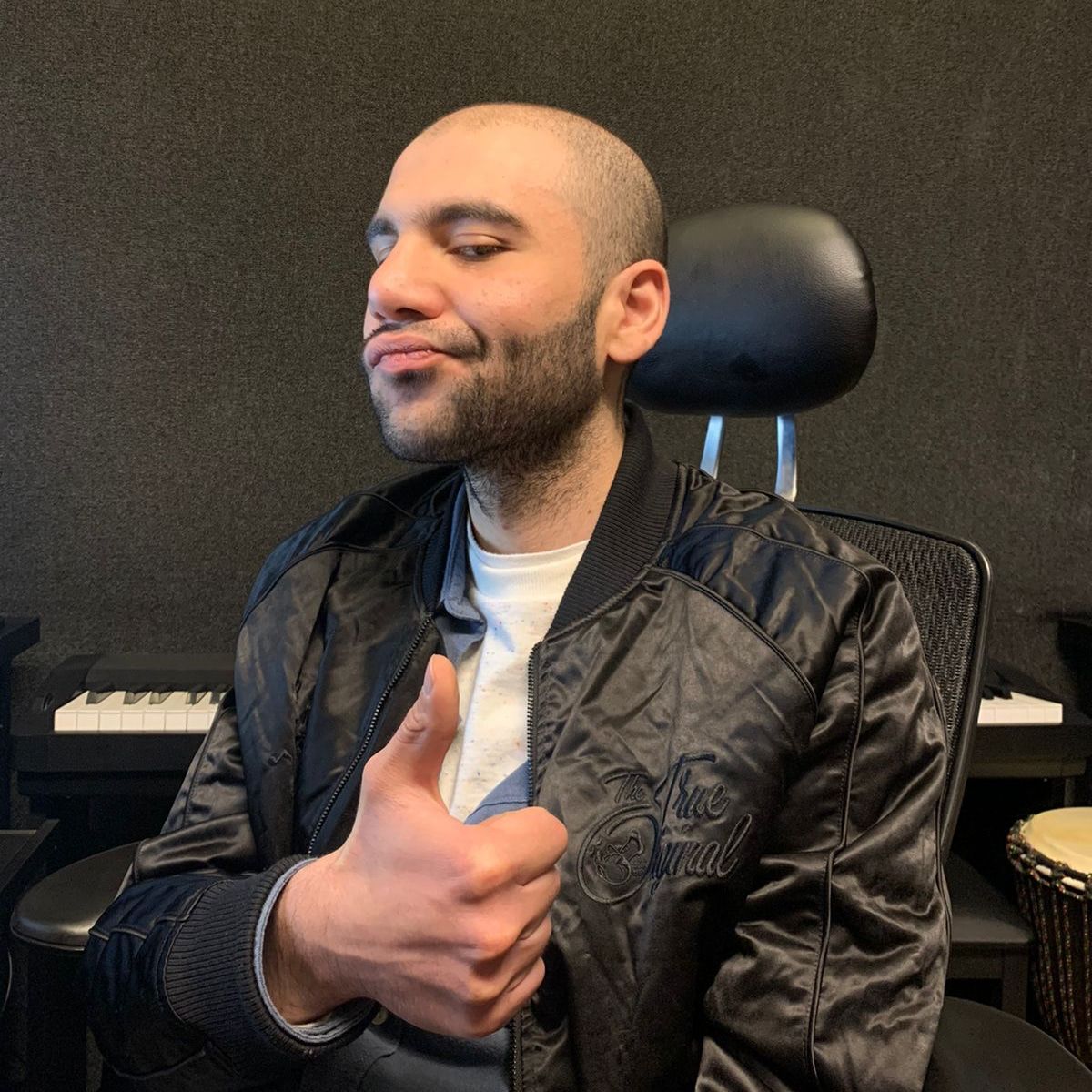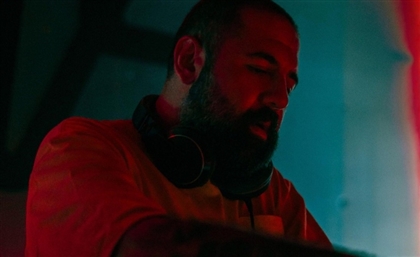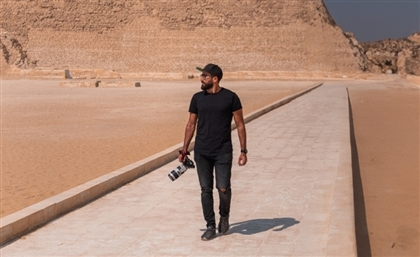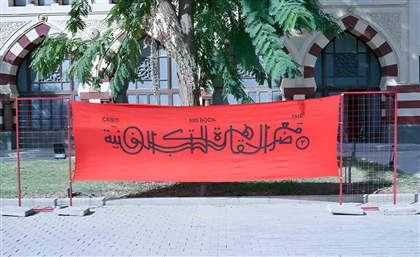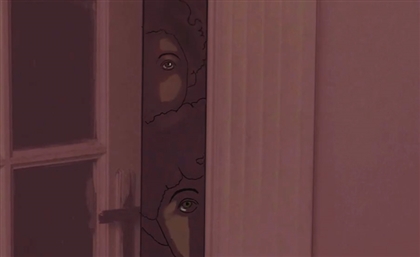'Le Guess Who?': The Dutch Festival Amplifying The Global Underground
Founder Bob van Heur sits down with SceneNoise to tell the story of Utrecht’s progressive music festival, and how it arrived at its inclusive philosophy.
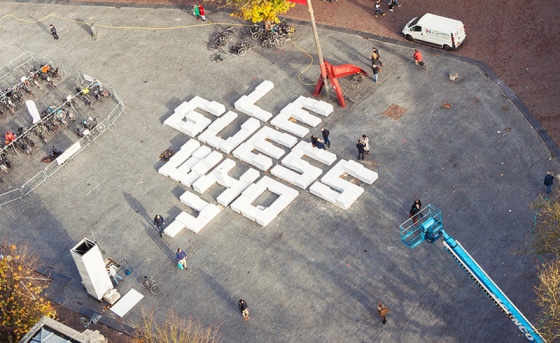
Having started as a festival dedicated to amplifying musical acts coming out of Canada, Le Guess Who? now stands as one of the leading events for alternative, electronic, and experimental music, lending its platform to artists hailing from all around the world.
The festival makes an effort to represent local music scenes to an international audience through concerts at bars, clubs, stages and makeshift venues in the Dutch city of Utrecht, as well as through their hybrid platform ‘COSMOS’, which shines a light on these music scenes with locally produced documentaries and remote radio broadcasts of live performances.
This year, the festival returns to Utrecht from from 9-12 November, with festival curators Heba Kadry, Nala Sinephro, Slauson Malone 1 and Stereolab, as well as an extensive line-up of over 100 artists performing in over 20 venues in Utrecht’s city center.
Ahead of this year's festival, we spoke with founder Bob van Heur about the history and philosophy behind Le Guess Who?, and about some of the exciting new projects the festival is introducing in its 16th edition.
How did Le Guess Who? come to be?
17 years ago me and a childhood friend were both actively working with music. He was a programmer at the main local venue Tivoli and I was working with artists as an agent and promoter. We always shared a love for similar music and really wanted to do something together. At that point lots of interesting music came out of Canada so we thought it was a good idea to focus on artists that were rarely presented over here and put a focus on that. The need to showcase underrepresented artists is a focus that remains till today.
-d17449a1-bc3e-4533-89ab-49d6d56921cb.jpg) What was the first edition of the festival like?
What was the first edition of the festival like?
The first edition was two nights, 10 artists and one venue. Although it wasn’t a financial success, it felt special. Musically it was deep and honest and we felt we had created a community. The director of Tivoli gave us some good advice: “You have to do something at least three times to know if it’s going to work or not.” That’s what saved the whole festival at that time.
How did it eventually expand to include acts from all over the world?
Already in the 2nd year of the festival we broadened our spectrum to more than just Canadian artists. I remember we got Beach House offered and we felt it would be a missed opportunity to not have them involved. From 2009, we let go of the Canadian focus completely to include music we liked, no matter where it comes from. From 2013 onwards the program really got a more global approach, both in terms of program as in reach.
How did the festival’s vision form?
The most important thing always was the vibe of the festival. It had to be a festival that was interesting for the audience, as well as for the artists. I used to be a booking agent, and I just noticed that a lot of bands playing festivals would come in and then leave immediately after the show, because there weren't necessarily enough interesting things happening to keep them there longer. But when you have a gathering of like-minded people in one place, it feels magical. That's something that I feel the artists deserve, and in the end, this also enhances the experience for visitors.
Has it always had guest curators?
No, not at first. The first official curator was Swans in 2014. Before that we had programs that artists would get involved in, but I think it was more like recommendations as opposed to actual curation. Since 2014, we’ve been adding more and more curators because we just suddenly saw that the artists would come up with greatsuggestions that were not on our radar yet. And with a curator’s stamp of approval it was a great way to introduce new music to our audience as well.
How did Heba Kadri’s curation for the festival come to be?
I’ve known Heba’s work for quite a few years and I've always been really impressed with it. I think it’s important to have someone who works behind the scenes curating a line-up as well. As a mastering engineer, I think her work is so insanely important for recordings, but the general audience doesn't necessarily think about these kinds of things. I think it’s refreshing to have her on board. Her being from Egypt and working in the USA obviously gives her a different perspective. Most importantly though: she has a sensitive and outspoken opinion about sound.
-6aa0496e-7623-4d56-b014-f085ff12329a.jpg)
What fuels ‘Le Guess Who?’ to spotlight artists from around the world?
I believe to organize a festival, it comes with a responsibility to educate and inform people about different cultures and what else is out there, and I totally think that music is the easiest way for people to start understanding each other. Besides having a very fun festival we also want to address the inequality in the world by using our platform to showcase a broad and diverse group of artists that might change your view on things.
What do you think of the music coming from the MENA region?
I’m very happy to see more and more music from this region getting more and more attention.
There is so much good music coming from everywhere, but especially Egypt and Lebanon have been steadily releasing high quality records the last years that caught our attention.
I love that it is modern music, and while it might sometimes build further on certain musical traditions, it always feels like something completely new. Very exciting stuff.
How many stages and venues will there be in this year’s edition of the festival?
The festival takes place in about 20 different locations and venues throughout the city of Utrecht. That's for the official program, but then we also have a day program called ‘U?’ which is free to attend. It's mainly focused on local and Dutch artists who perform around the city’s neighborhoods in bars, shops and car garages, so that adds another 30 to 35 locations.
In the festival’s line-up announcements, ‘Le Guess Who?’ promotes all artists equally regardless of their numbers. What led to this decision?
That decision kind of started years ago, when I had invited my parents to come and attend the festival. So my mom did some research, and she really wanted to see Staff Benda Bilili from the Congo. While we obviously had way “bigger” names playing there, my mom was obsessed with seeing that band, because to her, everyone else was unknown. And that kind of made us understand that headliners are like an industry fabricated illusion, and that it doesn't make sense to always put those same at the top, because for others, that might not be a headliner. Especially at a festival where we are not focused on mainstream artists.
Nowadays, when festivals announce their acts, the names of the headliners are huge in the posters, but then the acts below are replaceable. That didn't feel like it was a respectable way of dealing with artists and their work, because everyone puts in the same amount of effort, whether they’re a headliner or not.
How do you transform the city center into a festival grounds for the event?
We work with clubs and venues that already have their own permits and are ready to host events, and we also transform places like churches and warehouses into makeshift venues for the festival. It really depends on what the best thing for the artist is, and what kind of location they need. Besides this, we try to make the city a part of the festival weekend, so not just the venues that host artists, but also the book stores who will have a special selection of music books, the record shops who host instore shows, even restaurants and bars who offer special LGW menus. We always hear from international visitors that the city of Utrecht adds a lot of charm to the festival, as it feels quite intimate for a big city. More practically, it also helps a lot that there are some many good venues within walking distance from each other.
-23ea02ca-bf47-42cb-8a83-38e7c1ab41d7.jpg)
Tell me about your platform ‘COSMOS’
In 2020 we obviously couldn’t organize a festival due to Covid, so we hosted a three-day non-stop broadcast. We made a lot of documentaries for our project Reports From Other Continents. I think 27 or so from cities and music scenes around the world. We approached many people, a lot of whom we’d never talked to or even knew before. We would ask if they had a story they wanted to tell, and if they would be interested in making a short 5-10 minute video about a topic related to music, culture or art in the broadest way. It really made an impact on us, the festival and a global audience.
After that we asked ourselves: “Can we develop it further?” So now we’re testing out how to blend that into the festival. Last year it already had its own location within the festival where the documentaries were being shown.
Every year we invite eight new ‘embassies’ around the world to collaborate with us to showcase their local scenes via COSMOS. But besides that it is developing in more like a think tank as well. We connect all of the ‘embassies’ so that they can learn, get inspired and be educated by each other.
This year, during the festival, COSMOS will have its own area where the documentaries will be shown. We will have a program curated by these embassies performing live at the festival. And we work with several online radio-stations who will do a take-over in our studio at the festival. COSMOS is a platform representing the global underground.
What else are you excited about from this year’s edition of the festival?
We're going to do something really wild, I would say. It's called the Anonymous Project, where we decided to book some of our bigger artists, but not to announce them before, during or even after the show. They will be inside a gigantic cube built on stage, and nobody will know who is performing. The project is designed to bypass dynamics many artists face; being judged on the basis of how they look, what they wear, what ‘show’ they put on or the work the audience knows them from. It allows a moment for transformation and frees the musicians from the necessity to play their established repertoire, giving room to experiment instead of playing crowd pleasers.
And for the audience, you’re going to experience it, and you either love it or you hate it. Whatever you feel is fine with us. The experience and emotions towards this experiment will be purely based on the element of sound and the art of listening.
- Previous Article Italian-Palestinian Duo No Input Debuts Eponymous Electro EP
- Next Article Egyptian Embassies Around the World
Trending This Week
-
Dec 12, 2025







